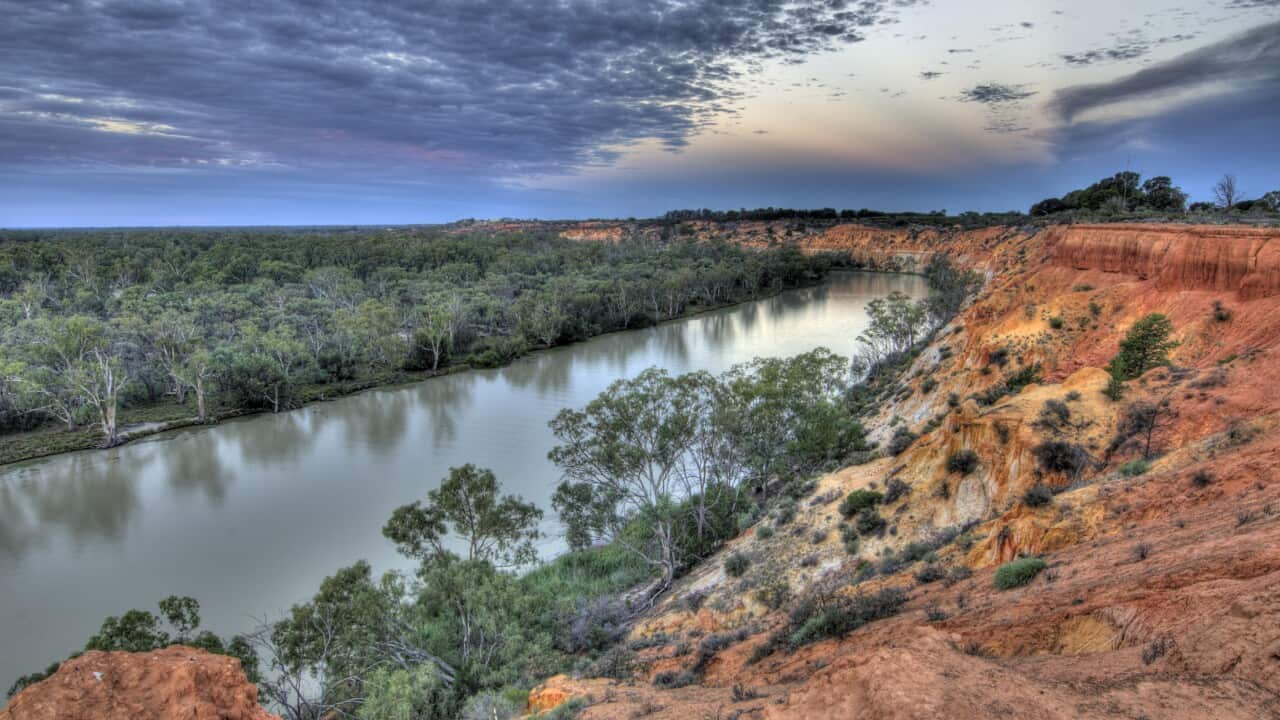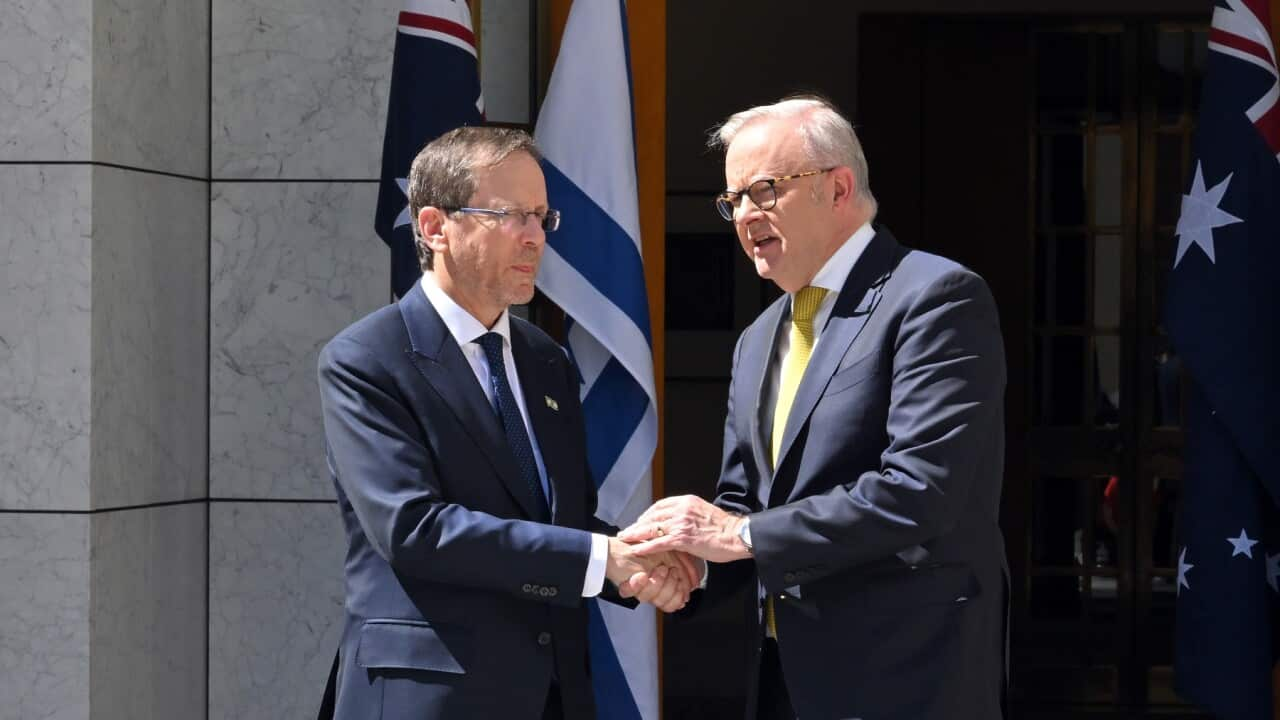Scopri altri nostri podcast cliccando qui.
SCARICA la trascrizione col testo a fronte in inglese.
Italiano
Quando si parla della principale legge australiana in materia ambientale, c'è ampio consenso sul fatto che...
"Is broken / broken / fix the broken environment laws / they're already weak, and broken."
Compreso il ministro dell'Ambiente, Murray Watt.
"They are utterly broken at the moment."
Watt ha annunciato un processo accelerato per la riforma della legge sulla salvaguardia dell'ambiente e la conservazione della biodiversità.
"We're bringing forward the introduction of that legislation to the Parliament by six months, and I will be introducing legislation to overhaul Australia's environmental laws this side of Christmas."
Il ministro ha affermato di aver partecipato a più di 40 incontri, tavole rotonde e forum negli ultimi tre mesi, tra cui la tavola rotonda sulla riforma economica del governo, dove è emerso un chiaro consenso.
"That these reforms are vital for our environment and for business. The simple truth is that we will not meet our national priorities, like delivering more homes, delivering renewable energy and, of course, protecting our environment, unless if we overhaul these laws."
Kelly O'Shanassy, amministratrice delegata dell'Australian Conservation Foundation, era presente alla tavola rotonda.
"Reform of the EPBC ACT is definitely back on, and there has been a lot of work being done working with the new Environment Minister, Murray Watt, to outline what needs to be delivered in those reforms to make sure that it works for nature and then we get stronger nature protections, as well as it works for business and we can get more efficient approvals. So that is going to happen, I think."
È un ambito in cui è stato difficile trovare un compromesso.
Il partito laburista aveva promesso di rivedere la legge nel suo primo mandato, ma non è riuscito a raggiungere un accordo con i Verdi, le cui trattative erano guidate dalla senatrice Sarah Hanson-Young.
"Well after three years of trying to get changes to Australia's environment laws that would protect nature, the government withdrew their bill in the end and stopped negotiations at the whim of the fossil fuel companies and the West Australian government. The Greens were in close negotiations with the previous Environment Minister and it was all upended when the Prime Minister decided that there would be no more negotiating."
Il governo potrebbe approvare le leggi con il sostegno della Coalizione, riducendo la possibilità che vengano abrogate, ma se ciò non funzionasse, avrà bisogno del sostegno dei Verdi.
L'amministratore delegato dell'Australian Industry Group, Innes Willox, sta esortando il Parlamento a portare a termine il lavoro.
"We hope that the round table conversation and the outcomes of it around the government agreeing to push ahead quickly with reform measures is a positive thing. We hope the Parliament understands that and accepts that, and that we don't get more unnecessary holdups or delays. There's no time like now, the roundtable has brought together a whole range of different groups and different perspectives. We would hope that this could be resolved quickly and work through with the states as well very quickly."
Dal punto di vista dell'industria, i problemi più gravi sono l'incertezza e la lentezza delle approvazioni, aggravate dalla sovrapposizione delle normative tra i governi statali e federali.
L'eliminazione di questa duplicità è stata una raccomandazione chiave della seconda revisione statutaria, consegnata al governo Morrison dal professor Graeme Samuel nel 2021.
Ciò sarebbe possibile grazie all'adozione degli standard ambientali nazionali, che secondo Kelly O'Shanassy godono di ampio sostegno.
"We need national environmental standards and they're basically rules that help you determine where you can build your developments and where nature needs to be protected. In the Act right now there is no outcome for nature defined, which means most projects proposed get approved, and that's why nature is being destroyed. There's not enough nature protections. So people agreed that we needed those National Environmental Standards in place, and even businesses around the table were saying things like, we need fast nos - if it's not going to get up, we need to know that really fast."
Innes Willox si è detto d'accordo.
"It's really important here that when proposals are put forward that they get a quick no. If the answer's clearly going to be no, if there's a proposed development in a wetland for instance, that should just be given a quick no under most circumstances, so then everyone can get on with it and not be tied up in green tape for a long time."
Sebbene vi sia ampio consenso sulla necessità di standard ambientali nazionali, i dettagli potrebbero rivelarsi più controversi.
Altrettanto controverso è il funzionamento dell'Agenzia per la protezione dell'ambiente (EPA) promessa dal Partito Laburista.
Per Kelly O'Shanassy l'Australian Conservation Foundation...
"... Wants the EPA to be the decision maker and some other groups want the minister to remain being a decision maker, which is the current process and which doesn't work."
Innes Willox ha dichiarato che è importante mantenere la responsabilità ministeriale, dato l'impatto che queste leggi hanno su questioni quali le infrastrutture critiche, l'edilizia abitativa e l'energia.
"There's probably an inherent problem with the same body or agency doing the compliance, but also being the approver; in legal parlance, them becoming the judge, jury and executioner."
Sul fronte politico, Sarah Hanson-Young ha sostenuto che i Verdi affronteranno qualsiasi negoziazione con un atteggiamento costruttivo e tre principi fondamentali.
"We need to protect critical habitat. We need to protect native species from extinction and we need to stop pollution and carbon pollution. Climate must be included in these laws if they're to actually safeguard our environment, if they're to look after and protect nature and if they're going to be fit for purpose in the modern world."
Inglese
When it comes to Australia's main environment law, there's broad agreement that it ...
"Is broken / broken / fix the broken environment laws / they're already weak, and broken."
Including Environment Minister, Murray Watt.
"They are utterly broken at the moment."
He's announced an accelerated timeline to reform the Environment Protection and Biodiversity Conservation Act.
"We're bringing forward the introduction of that legislation to the Parliament by six months, and I will be introducing legislation to overhaul Australia's environmental laws this side of Christmas."
The Minister says he's held more than 40 meetings, roundtables and forums in the past three months, including at the government's economic reform roundtable, where there was clear consensus.
"That these reforms are vital for our environment and for business. The simple truth is that we will not meet our national priorities, like delivering more homes, delivering renewable energy and, of course, protecting our environment, unless if we overhaul these laws."
Australian Conservation Foundation CEO Kelly O'Shanassy was at the roundtable.
"Reform of the EPBC ACT is definitely back on, and there has been a lot of work being done working with the new Environment Minister, Murray Watt, to outline what needs to be delivered in those reforms to make sure that it works for nature and then we get stronger nature protections, as well as it works for business and we can get more efficient approvals. So that is going to happen, I think."
It's an area where compromise has been hard to find.
Multiple governments have failed to achieve the reform.
Labor promised to overhaul the law in its first term but couldn't reach a deal with the Greens, whose negotiations were led by Senator Sarah Hanson-Young.
"Well after three years of trying to get changes to Australia's environment laws that would protect nature, the government withdrew their bill in the end and stopped negotiations at the whim of the fossil fuel companies and the West Australian government. The Greens were in close negotiations with the previous Environment Minister and it was all upended when the Prime Minister decided that there would be no more negotiating."
The government could pass the laws with support from Coalition - reducing the possibility of them being repealed - but if that doesn't work, they will need support from the Greens.
Chief Executive of the Australian Industry Group, Innes Willox, is urging the Parliament to get the job done.
"We hope that the round table conversation and the outcomes of it around the government agreeing to push ahead quickly with reform measures is a positive thing. We hope the Parliament understands that and accepts that, and that we don't get more unnecessary holdups or delays. There's no time like now, the roundtable has brought together a whole range of different groups and different perspectives. We would hope that this could be resolved quickly and work through with the states as well very quickly."
From the industry perspective, the biggest issues are uncertainty and slow approvals, made worse by overlapping regulations across state and federal governments.
Removing this duplication was a key recommendation of the second statutory review, handed to the Morrison Government by Professor Graeme Samuel in 2021.
This would be achieved using National Environmental Standards, which Kelly O'Shanassy says have widespread support.
"We need national environmental standards and they're basically rules that help you determine where you can build your developments and where nature needs to be protected. In the Act right now there is no outcome for nature defined, which means most projects proposed get approved, and that's why nature is being destroyed. There's not enough nature protections. So people agreed that we needed those National Environmental Standards in place, and even businesses around the table were saying things like, we need fast nos - if it's not going to get up, we need to know that really fast."
Innes Willox agrees.
"It's really important here that when proposals are put forward that they get a quick no. If the answer's clearly going to be no, if there's a proposed development in a wetland for instance, that should just be given a quick no under most circumstances, so then everyone can get on with it and not be tied up in green tape for a long time."
While there is broad consensus National Environmental Standards are needed, the finer details may prove more controversial.
Also contentious is how Labor's promised Environment Protection Agency would work.
Kelly O'Shanassy says the Australian Conservation Foundation ...
"... Wants the EPA to be the decision maker and some other groups want the minister to remain being a decision maker, which is the current process and which doesn't work."
Innes Willox says it's important to retain ministerial accountability, given the impact these laws have on issues like critical infrastructure, housing and energy.
"There's probably an inherent problem with the same body or agency doing the compliance, but also being the approver; in legal parlance, them becoming the judge, jury and executioner."
On the political front, Sarah Hanson-Young says the Greens will go into any negotiations with a constructive attitude, and three key principles.
"We need to protect critical habitat. We need to protect native species from extinction and we need to stop pollution and carbon pollution. Climate must be included in these laws if they're to actually safeguard our environment, if they're to look after and protect nature and if they're going to be fit for purpose in the modern world."
Report by SBS News
Ascolta SBS Italian tutti i giorni, dalle 8am alle 10am.
Seguici su Facebook e Instagram o abbonati ai nostri podcast cliccando qui.




